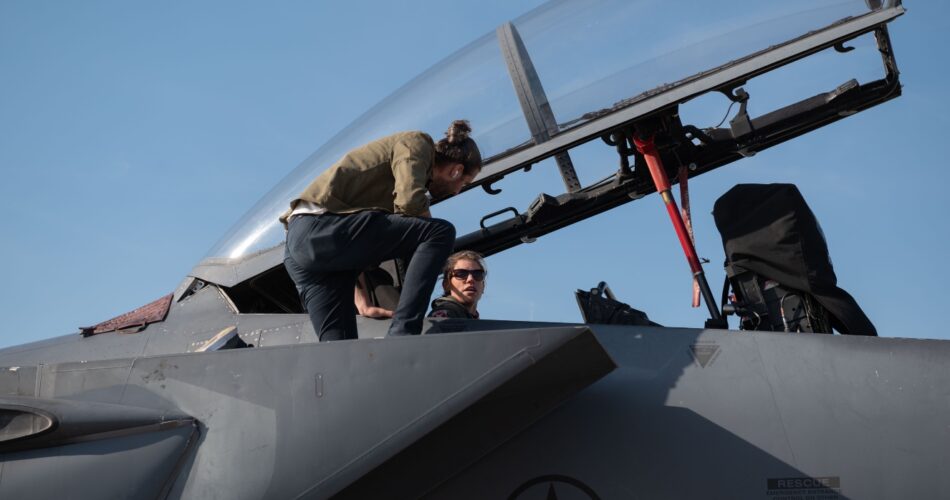A way to fix the issue of peeing while flying
A new technology that would make it simpler for female pilots to urinate during lengthy flights is being tested out for the first time by pilots at an Air Force base in North Carolina.
The lack of a practical or secure method for women in the military to relieve themselves has long been a problem; they frequently resort to dehydration, diapers, or simply holding their urine during training or a mission.
Long-term urine holding can cause a number of health issues, including infections, headaches, and a general weakening of the bladder muscles. The Air Force warns that a technique known as “tactical dehydration” includes aviators going hours without drinking any liquids at all but this can pose a number of safety issues.
“This method can cause fatal errors and health issues, such as lowering the aircrew’s ability to withstand high g-forces by 50% and increase headaches”, the 4th Fighter Wing said in a press release.
But, according to this article, female pilots are ground testing a new bladder relief technology at Seymour Johnson Air Force Base in Goldsboro, North Carolina.
We have already talked about the problem of peeing during flights for pilots when explaining the Skydrate device, another technology to make pilots pee in flight. Aircrew members employ bladder relief devices called Skydrate and Airus while in the air, however, they use different technologies. The Skydrate device is an improved model of the original Skydrate device. Yet, Airus was created by the Air Force Research Laboratory (AFRL) specifically for use by female airmen. The collecting bag is bigger, the flow rate is better, there are different hose lengths, the on/off functionality is one-handed, and there are additional interface or pad sizes to take wearer anatomical variances into account.
According to the 4th Fighter Wing, the Air Force granted a prototype contract for the Airus by Airion Health system. It uses a cup liner that the pilot wears underneath the underwear. After that, a pumping mechanism removes the liquid from the flight suit without requiring the pilots to take off their harnesses.
“We brought in a lot of female experts to really take a look at what this is and how to make a system for women from women versus being a male-driven design”, Cam Chidiac, Airion Health managing member, said.
Previous bladder relief technology was created with the physiology of men in mind; as women entered the fields of aviation and combat, the technology had to be changed. In 2020, the Air Force began requesting contracts and suggestions for system upgrades.
According to the press release, one common practice now employed by pilots requires them to unbuckle from their harness and gear, which can take almost an hour, in order to urinate into a bag collection system but this can be risky in the event of a sudden in-flight emergency.
According to The Associated Press, in 1992 the fighter pilot of an American F-16 Fighting Falcon was forced to eject after losing control of the aircraft while urinating, resulting in the crash of the aircraft.
The Air Force has been working to change a number of long-standing practices to enhance the quality of life for women and pregnant service members as the news of the testing breaks.
The service has only recently approved longer hairstyles for women, and it is also working on maternity flight suits and wrap dresses for pregnant airmen.
